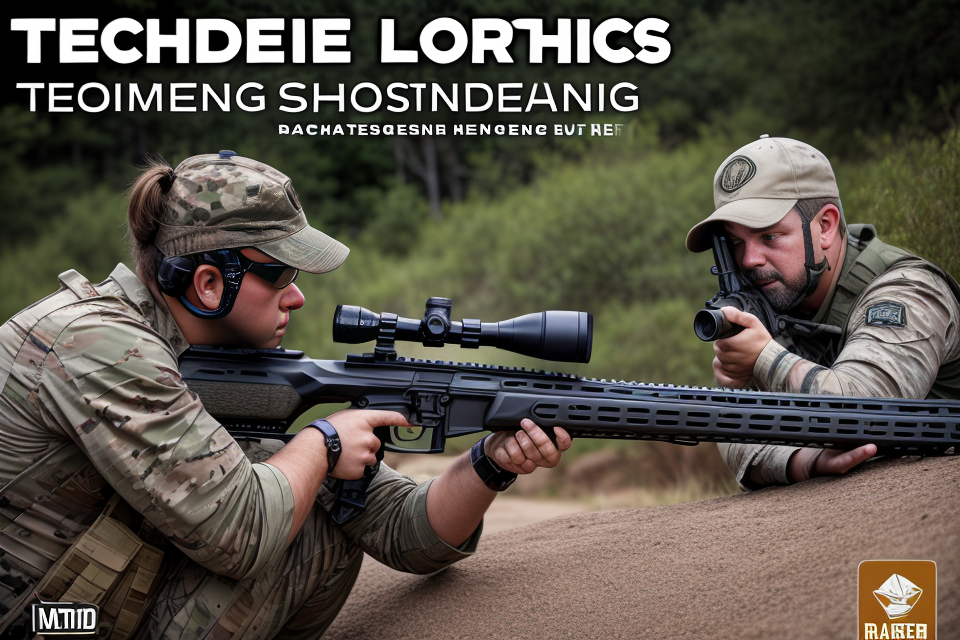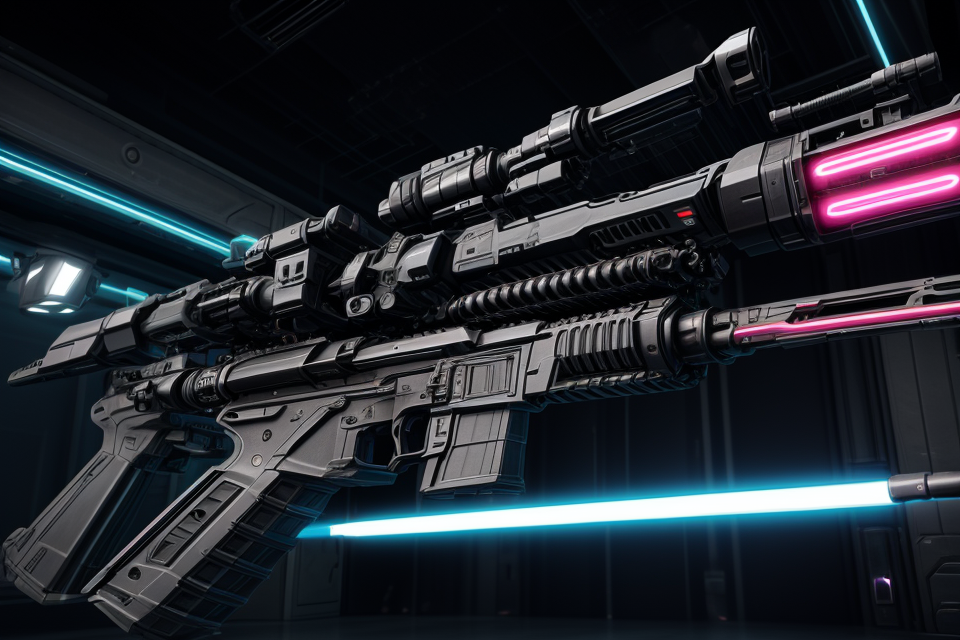
In the world of Dungeons and Dragons (D&D), players can wield a variety of weapons, each with its own unique properties and abilities. Among these weapons, the holy weapon stands out as a powerful and unique tool for those who serve the forces of good. In this article, we will explore what a holy weapon is in D&D 5e, its origins, and how it can be used to defeat evil.
A holy weapon is a magical weapon that is imbued with divine energy. These weapons are not ordinary weapons and can only be wielded by those who are deemed worthy by the gods. They are typically used by characters who are devoted to good and who serve the forces of light, such as paladins, clerics, and rangers.
Origins of Holy Weapons
The concept of holy weapons has been present in fantasy literature for centuries, with weapons imbued with divine power being used by heroes to fight against evil. In D&D, holy weapons are created through a special ceremony that involves a priest or cleric calling upon the divine power of their deity to imbue the weapon with magic.
Uses of Holy Weapons
Holy weapons are not just powerful tools for combat, but they also have other uses. For example, they can be used to heal wounds, banish evil spirits, and even to detect lies. Additionally, holy weapons are often associated with specific deities, and their power can be increased by those who are devout followers of that deity.
Conclusion
In conclusion, holy weapons are powerful and unique tools in D&D 5e that are imbued with divine energy. They are typically used by characters who are devoted to good and who serve the forces of light. Whether used for combat or other purposes, holy weapons are a valuable asset for any player looking to vanquish evil and uphold justice in the world of D&D.
In Dungeons and Dragons 5th edition (D&D 5e), a Holy Weapon is a magical weapon that is imbued with divine energy. It is a powerful weapon that can be used by characters of any class, and it is often used by clerics and paladins to defeat evil and uphold justice. Holy Weapons are typically made from silver or other holy metals, and they are often adorned with religious symbols. When a Holy Weapon is used in combat, it deals extra damage to creatures that are evil or undead, and it also grants the wielder a bonus to attack and damage rolls. Holy Weapons are a powerful tool for any character looking to fight against the forces of darkness, and they can be found through quests, purchased from vendors, or crafted by skilled artisans.
Definition of a Holy Weapon
How to Identify a Holy Weapon
When it comes to identifying a holy weapon in D&D 5e, there are several key features to look out for. First and foremost, a holy weapon is one that has been imbued with divine energy, making it particularly effective against creatures that are undead or demonic in nature.
One way to identify a holy weapon is by its appearance. Holy weapons are often decorated with religious symbols or engravings, such as crosses, holy symbols, or other emblems of faith. These decorations may be intricate and ornate, or they may be more subtle and understated, but they are always present on a holy weapon.
Another way to identify a holy weapon is by its magical properties. Holy weapons are imbued with magic that makes them more effective in combat. For example, a holy sword might have a higher critical hit range, or a holy mace might deal extra damage against undead creatures. These magical properties are usually determined by the deity that the weapon is associated with, and they may vary from weapon to weapon.
Finally, holy weapons have a unique effect on undead creatures. When a holy weapon is used to strike an undead creature, it deals extra damage, which is added to the weapon’s normal damage output. This extra damage is determined by the weapon’s magic properties and the deity it is associated with, and it can be a significant boost to a character’s combat effectiveness.
Overall, identifying a holy weapon in D&D 5e requires a keen eye for religious symbols and magical properties, as well as an understanding of the unique effects that these weapons have on undead creatures.
Criteria for a Weapon to be Considered Holy
In the world of Dungeons and Dragons 5th edition (D&D 5e), a holy weapon is a unique type of magical weapon that possesses powerful divine properties. These weapons are not just ordinary weapons but hold great significance in the battle against evil forces. In order for a weapon to be considered holy, it must meet certain criteria.
One of the primary criteria for a weapon to be considered holy is that it must be used for a righteous purpose. This means that the weapon must be wielded by a character who is fighting for a just cause, such as protecting the innocent, upholding justice, or defending the weak. The weapon’s purpose must align with the values of goodness and righteousness.
Additionally, the weapon must be attuned to a character with a good alignment. This means that the character wielding the holy weapon must have a good alignment, such as good, lawful good, or neutral good. The weapon’s alignment must match that of its wielder, as the holy power within the weapon is attuned to the moral and ethical values of its wielder.
Finally, the weapon must be forged with divine magic. This means that the weapon has been imbued with powerful divine energy by a deity or other divine being. The weapon’s magic is not just arcane in nature, but it is also infused with the power of the divine. This divine magic gives the weapon its unique properties and abilities, such as the ability to bypass certain protections or resistances, or the ability to deal extra damage to evil creatures.
Overall, a holy weapon in D&D 5e is a powerful and unique weapon that possesses divine properties and is attuned to a character with a good alignment. The weapon’s purpose must be righteous, and it must be forged with divine magic. Only then can a weapon be considered holy and wielded by a character in the battle against evil forces.
The Power of Holy Weapons
In the world of Dungeons and Dragons 5th edition (D&D 5e), a holy weapon is a powerful and magical weapon that is imbued with divine energy. These weapons are considered to be sacred and are often used by holy warriors, paladins, and other devout characters as a means of righteousness and protection.
The power of holy weapons lies in their ability to overcome challenges and defeat enemies that would otherwise be too powerful for the average adventurer to handle. In many cases, holy weapons can turn the tide of battle and give the players an edge in combat.
Here are some of the ways that holy weapons can affect gameplay:
- Additional Damage: Holy weapons deal additional damage to creatures that are not aligned with good, such as demons, devils, and undead. This extra damage can make a significant difference in combat, especially against powerful foes.
- Healing: Some holy weapons have the ability to heal wounds, either to the wielder or to allies in close proximity. This can be a valuable asset in combat, as it allows the party to stay healthy and keep fighting.
- Protection: Holy weapons can grant the wielder resistance to certain types of damage, such as fire or cold. This can be useful in situations where the party is facing environmental hazards or powerful elemental foes.
- Ability to bypass spell resistance: Some holy weapons have the ability to bypass spell resistance, allowing the wielder to overcome magical defenses that would otherwise be impenetrable.
- Bonus to saving throws: Some holy weapons grant the wielder a bonus to saving throws, making it easier to resist spells and other magical effects.
Overall, holy weapons are powerful tools that can greatly enhance the abilities of the characters who wield them. They are a valuable asset in combat and can help the party overcome even the most challenging obstacles.
Advantages of Using a Holy Weapon
Benefits for Characters
When a character wields a holy weapon in D&D 5e, they gain several advantages that can greatly benefit their gameplay. Here are some of the key benefits:
- Increased damage against undead creatures: Holy weapons are imbued with divine energy that makes them particularly effective against undead creatures such as zombies, skeletons, and vampires. When a character wields a holy weapon, they can deal extra damage to these creatures, making it easier to defeat them in combat.
- Increased damage against evil creatures: In addition to undead creatures, holy weapons also deal extra damage against creatures that are considered evil by the laws of the universe. This includes creatures like demons, devils, and certain types of giants. By wielding a holy weapon, a character can quickly dispatch these foes and move on to other challenges.
- Improved attack and damage rolls: Some holy weapons also grant additional bonuses to a character’s attack and damage rolls. This can make it easier to hit and damage enemies, especially when facing multiple foes at once. Additionally, some holy weapons have special abilities that can be triggered in combat, such as dealing extra damage or granting temporary hit points to allies.
Overall, holy weapons are a powerful tool for characters in D&D 5e, providing an extra edge in combat against a variety of foes. Whether you’re facing hordes of undead or battling evil creatures, a holy weapon can make all the difference in the outcome of a battle.
Benefits for Game Masters
When incorporating holy weapons into your Dungeons & Dragons 5th Edition (D&D 5e) game, you as the game master stand to gain several advantages. These benefits can help enhance your game by providing increased challenge for players, creating memorable encounters, and encouraging roleplaying and storytelling.
Increased Challenge for Players
Incorporating holy weapons into your game can significantly increase the challenge for your players. These weapons have unique abilities that can make them incredibly powerful tools in combat. For example, a holy avenger sword has the ability to bypass damage reduction and heals the wielder when they deal killing blows. Similarly, a flaming sword can ignite flammable objects and deals extra fire damage.
By providing players with access to these powerful weapons, you can increase the difficulty of combat encounters and encourage players to strategize and utilize their abilities effectively. This can lead to more engaging and challenging gameplay, which can be incredibly rewarding for both you and your players.
Creation of Memorable Encounters
Holy weapons can also be used to create memorable encounters for your players. These weapons often have unique abilities that can be used to create interesting and challenging situations for players to overcome. For example, a holy avenger sword can be used to represent a powerful and pious hero who is fighting against an evil foe. Similarly, a flaming sword can be used to represent a powerful and destructive force that players must navigate through.
By incorporating holy weapons into your game, you can create memorable encounters that players will remember and talk about long after the game is over. This can help create a more immersive and engaging gameplay experience for everyone involved.
Encouragement of Roleplaying and Storytelling
Finally, holy weapons can be used to encourage roleplaying and storytelling among your players. These weapons often have rich histories and lore behind them, which can be used to inspire players to take on the role of powerful heroes fighting against evil. Additionally, holy weapons can be used to represent powerful artifacts or magical items that have a significant impact on the game world.
By incorporating holy weapons into your game, you can encourage players to take on the roles of powerful heroes and embark on epic quests to save the world. This can lead to a more immersive and engaging gameplay experience, as players are able to fully embrace their characters and the world around them.
Disadvantages of Using a Holy Weapon
Risks for Characters
When using a holy weapon in D&D 5e, characters face several risks that could potentially compromise their mission or even their lives. Here are some of the key risks to consider:
- Vulnerability to possession by evil entities: A holy weapon’s potency comes from its divine power, which can make it a highly sought-after object for evil entities looking to increase their own power. This means that characters using a holy weapon may be more vulnerable to possession by demons or other malevolent beings, which could have dire consequences for the party.
- Corruption by evil powers: In a similar vein, using a holy weapon could expose characters to the corrupting influence of evil powers. Over time, the weapon’s divine energy may become tainted by dark magic, leading to unexpected behavior or even turning the weapon against its wielders.
- Forced alignment change: Some holy weapons are tied to specific alignments, such as lawful good or chaotic evil. Using a weapon that aligns with a different moral compass could potentially force a character’s alignment to change, potentially causing them to lose class features or abilities. Additionally, this change could cause conflicts within the party, especially if other members have different alignments.
Overall, while holy weapons can be powerful tools in the right hands, characters must be aware of the risks associated with using them. Careful consideration and planning are necessary to ensure that the weapon’s benefits outweigh its potential drawbacks.
Risks for Game Masters
Using holy weapons in a Dungeons & Dragons (D&D) game can have several risks for game masters. Some of these risks include:
- Overuse of powerful weapons: When players have access to holy weapons, they may be tempted to use them excessively, which can lead to a lack of variety in the gameplay. This can make the game less enjoyable for both the players and the game master.
- Unbalanced gameplay: Holy weapons are typically more powerful than other weapons, which can unbalance the game if they are used too frequently. This can make it difficult for the game master to create challenging encounters for the players, as the players may be able to overcome these challenges more easily than they would without the use of holy weapons.
- Encouragement of metagaming: When players have access to holy weapons, they may be more likely to metagame, which is the act of using outside knowledge or resources to gain an advantage in the game. This can include looking up information about the game or collaborating with other players outside of the game. When players have access to powerful weapons like holy weapons, they may be more likely to use this information to gain an unfair advantage over the game master and other players.
Recap of Key Points
A holy weapon is a powerful and unique type of weapon in the world of Dungeons and Dragons 5th edition (D&D 5e). To be considered a holy weapon, a weapon must meet certain criteria, such as being made of certain materials or being imbued with divine power.
The power of holy weapons comes from their ability to bypass certain defenses and deal extra damage to creatures that are not aligned with their intended purpose. For example, a holy sword may deal extra damage to undead creatures, while a holy warhammer may deal extra damage to ogres and trolls.
Using a holy weapon has its advantages and disadvantages. While holy weapons can be incredibly powerful and effective in combat, they also come with some limitations and drawbacks.
- Definition of a holy weapon
- Criteria for a weapon to be considered holy
- The power of holy weapons
- Advantages and disadvantages of using a holy weapon
Final Thoughts
- Encouragement to use holy weapons in a balanced and creative way: Holy weapons are a powerful tool for both players and Dungeon Masters to add depth and complexity to their gameplay. However, it is important to use them in a balanced and creative way, taking into account the strengths and weaknesses of each weapon and how they fit into the story.
- Reminder to consider the impact on gameplay and storytelling: The use of holy weapons can have a significant impact on gameplay and storytelling. It is important to consider how their use will affect the overall narrative and the characters involved, and to make sure that their power is not overwhelming or unbalanced.
- Final words on the importance of holy weapons in D&D 5e: Holy weapons are an integral part of the D&D 5e system, providing powerful options for characters looking to fight against evil and protect the innocent. Whether used by a devoted paladin or a cunning rogue, holy weapons offer a unique and exciting gameplay experience that can bring new depth and excitement to any campaign.
FAQs
1. What is a holy weapon in D&D 5e?
A holy weapon is a weapon that has been imbued with divine energy. It is a powerful weapon that can only be wielded by characters who are pure of heart and have a strong alignment with goodness. The power of a holy weapon comes from its ability to channel the power of the deity that it is associated with.
2. How does a holy weapon differ from a regular weapon?
A holy weapon is not just a regular weapon with some extra abilities tacked on. It is a fundamentally different type of weapon that is infused with divine energy. This energy can take the form of bonus damage, special abilities, or other effects that are not present in regular weapons. Additionally, holy weapons are often more durable and resistant to damage than regular weapons.
3. How does a character become pure of heart and eligible to wield a holy weapon?
To wield a holy weapon, a character must have a strong alignment with goodness and be pure of heart. This means that they must have a good alignment and have a reputation for doing good deeds. Additionally, they must be devoted to a deity or have a strong belief in a higher power.
4. How do you determine if a weapon is a holy weapon?
A holy weapon is typically identified by its appearance, such as having a glowing aura or bearing the symbol of a deity. Additionally, a holy weapon may have special abilities or bonuses that are not present in regular weapons. If you are unsure if a weapon is a holy weapon, you can have it identified by a magic item identifier or a cleric.
5. Can a holy weapon be used by anyone, or only by characters of good alignment?
A holy weapon can only be used by characters who are pure of heart and have a strong alignment with goodness. This means that it cannot be used by characters who have evil alignments or who have committed evil deeds. Additionally, a holy weapon may have restrictions on who can use it, such as only being usable by a certain race or class.


